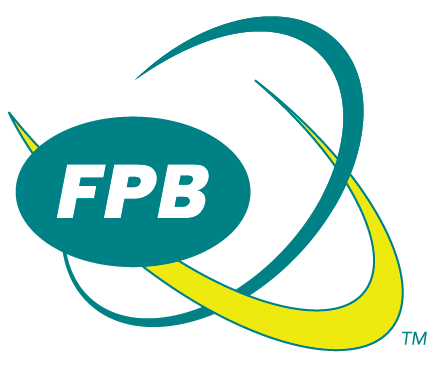In Depth Look at FPB Cable Rate Increases
/As a cable service provider, FPB is faced with the harsh reality of passing annual cable rate increases through to our customers. FPB, as a not-for-profit municipal utility, strives to avoid large increases. In fact, FPB’s annual increases are primarily a pass-through from programmers, to the utility and on to the customer.
Over the last 13 years, FPB Classic Cable customers have seen rates increase by nearly $40, from $25.50 in 2003 to a proposed rate of $64.50 in 2016. While the increase is substantial, a closer look at what causes the increase reveals an alarming nation-wide trend. “All across the country, cable providers are being hit with higher and higher programming costs,” says Harvey Couch, FPB Marketing and Video Content Coordinator. “These costs have skyrocketed over the past 10-15 years. Looking at the direct impact on FPB and its customers since 2003, the numbers paint a very disturbing picture.”
Couch stated most of the Classic Cable charges leave our community and fund large media conglomerates outside of Kentucky. “Breaking down the FPB Classic Cable bill, most of the rate goes to programming costs. Currently, FPB Classic Cable (including retransmission fees) costs $64.43 per month, per customer. Media companies in cities like Los Angeles, New York, and Atlanta who own cable networks and broadcast affiliates receive approximately $48.00 of that charge.”
The remaining amount ($16.46) is the only portion of FPB Cable customers’ bills that stays in Frankfort. Couch says that small amount helps fund FPB Cable’s operational budget, including equipment, personnel, upgrades, and infrastructure maintenance. In 2002, the amount staying in Frankfort was $15.75. While FPB customer rates have unfortunately increased significantly since 2002, the amount that stays in this community has essentially remained the same. FPB has received only $.71 of the $40 increase.”
For more than a decade, the large cable programmers have taken negotiations to a new level. “Our co-op, the NCTC (National Cable Television Cooperate), negotiates with different
programmers every year. While annual increases are expected and budgeted for, how these programmers are doing business with providers is less than optimal.” According to Couch, essentially a few major companies own over 85% of all cable networks. This dynamic gives the programmers incredible leverage on all cable providers, especially small independent operators like FPB. “There are only seven or eight companies who own a vast majority of all cable networks. This allows these networks to force providers like FPB to carry many, if not all, of the channels owned by these large corporations. They force large rate increases, require channel launches and compel lineup demands. The deck is really stacked against the provider and the customer.” In just the last 45 days, FPB was required to launch Oxygen and OWN on Classic Cable by previously executed contracts with NBC/Universal and Discovery Networks respectively.
As we wind down 2015 and look to 2016, Couch says FPB is being forced to pass on another potential Classic Cable rate increase. “We have several contracts up for renewal in the next several months. NBC/Universal, AMC Networks, and Turner Broadcasting are all set for renewal. Staff planned and budgeted for an increase of around $5 per month/per customer, a result of annual rate increases imposed by programmers like Disney/ESPN, Fox, and Viacom. What we didn’t plan for was the astronomical increase and demands from AMC Networks (AMCN).” The proposed increase on Classic Cable is $6.35. At the same time, Preferred Cable is being proposed to decrease by a $1 which is a result of the mandatory re-positioning of less popular channels to Classic Cable. “We would prefer to continue carrying these channels on the Preferred Cable tier and give our customers greater choice,” Couch stated.
As of December 10, there has been no change in AMC Networks’ demands. The NCTC has continued to negotiate in good faith, while AMCN has responded with virtually no concessions. FPB carries AMC on Classic Cable, while IFC, We TV, and BBC America are offered on Preferred Cable. AMCN is demanding FPB move the Preferred Cable networks to Classic Cable (therefore passing on the expense to more subscribers) as well as launch two other AMCN channels (Sundance Channel and BBC World News) on Classic Cable. AMCN is demanding to go from one to six networks on Classic Cable. According to Couch, this should be a customer decision, not one forced on to unwilling subscribers. “Migrating three lightly-viewed channels and launching two brand new channels that customers do not want on Classic Cable doesn’t seem fair to FPB or our customers.”
If FPB accepts these terms, the increase to customers for AMCN programming alone on FPB Classic Cable would be approximately 400% more than the current AMCN contract.
Additionally, AMCN is requesting a 10 year contract. Couch states this is an unprecedented demand from AMCN. “Most cable programming contracts are three to five years. It seems irresponsible to sign a contract of that length, especially not knowing the landscape of the video world in 10 years.”
FPB staff and operators from another 700 NCTC member companies have communicated to AMCN that we are willing to pay a fair increase on AMC and maintain existing distribution for their other channels, but AMCN has continued to make it clear the distribution terms on this deal were going to be an all or nothing situation.
Overall, even with the annual increase, Couch states that FPB’s cable rates are still an exceptional value. “We understand the frustration our customers have with the annual increase. As a not-for-profit cable provider, FPB is dedicated to providing reliable service at the lowest possible rate. It is a responsibility we take great pride in and our rates are still lower than most surrounding communities. We are proud to be a local, municipal provider. We strive to be fair, even if the negotiations with the networks are not. ”




